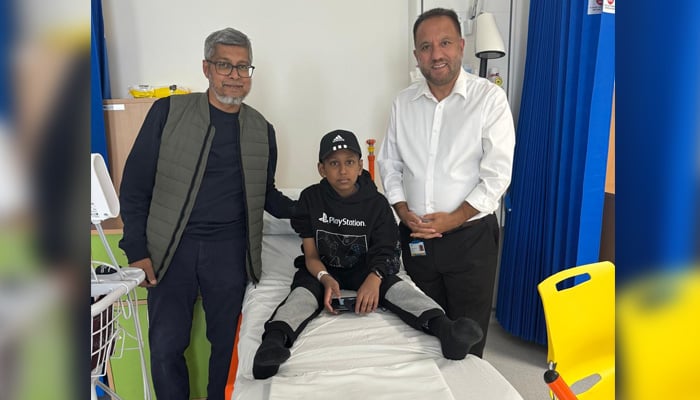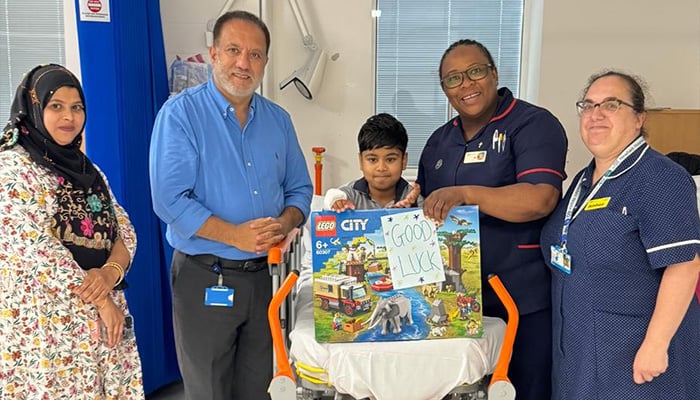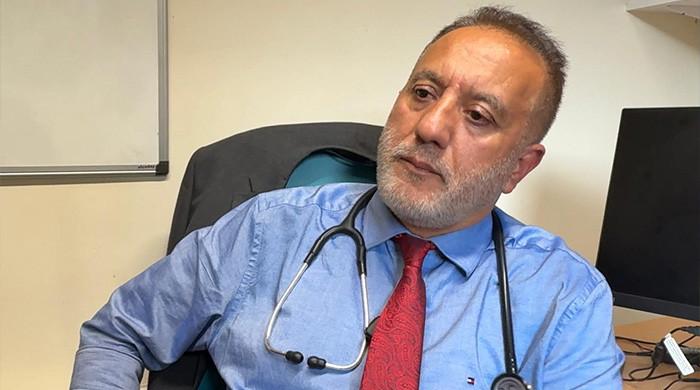London: the British-Pakistani pediatric consultant, Dr. Sher Bahadur Anjum, successfully treated two young Thalassémie patients through gene therapy, transforming their lives in terms of normality-for the first time in the United Kingdom.
Dr. Anjum, who specializes in hematology (blood disorders) at Newham hospital in eastern London, which is part of Barts Health NHS Trust, led a team of caregivers to Newham hospital to treat the two young boys, now 11 and 13 years old, Bangladais.
Thalassémie is a genetic condition which is most frequent in those who are Pakistani, Indians and Bangladais. It is a blood disorder and people with thalassemia have low iron and oxygen levels in the body. This can make them severely anemic – tired, attempt and pale.
To treat their thalassemia, the two patients had to go to the hospital for blood transfusions each month, which had a major impact on their quality of life. The only remedy is a stem cell transplant or bone marrow, but this is not very often done due to the risks involved, and it can be difficult to find donors.

Thanks to a new innovative gene therapy administered by Dr Anjum and his team, working with the large Ormond Street hospital (GOSH), the two young boys, now aged 11 and 13, are now living a healthy and happy life without other visits to the hospital or regular blood transfusions.
Before obtaining the 4-week treatment in Gosh, Dr. Anjum and the Newham Hospital health team carried out large pre-Genic therapy care over three months, which included blood tests, vaccinations and the maintenance of correct hemoglobin levels. Their care in Newham also continued long after treatment, with surveillance, the number of blood and the management of side effects.
When Dr. Anjum approached families for the first time, they both hesitated to start this therapy because it was new and requires a longer hospital stay. However, after almost 12 months to talk to them, listen to and answer their questions and concerns, they were reassured to start the treatment of their children.

Now their lives has changed forever thanks to treatment, and they want to encourage other parents from South Asia to occupy the offer if doctors find them eligible.
Dr. Anjum, who initially studied in the village of Astoria de Gilglit Baltistan, then the Abbottabad Medical College (AMC), told PK Press Club News: “Gene therapy is a new treatment that aims to solve the problem at its root. Doctors take enough cells from your child to prepare hemoglobin, then make hemoglobin alone, so they no longer need regular blood transfusions.
“My two patients had grown up knowing only hospital visits and transfusions. Their parents had experienced years of emotional and practical struggles, doing everything possible to keep their children well. When Barts Health NHS Trust was invited to identify patients for the new gene therapy program, we have seen a unique opportunity.
“But convincing families was not easy. Genet therapy is new, complex and frightening for parents who have already endured a lot. Naturally, the two families were hesitant and are afraid of risks. preparation, but the courage of these families crossed them.
“Six months later, the transformation is extraordinary. These children, formerly attached to hospital beds and transfusion hours, now live a normal life without the need for blood transfusions. Their energy has returned, their future is brighter and their families were finally freed from the endless cycle of hospital visits. ”
Dr. Anjum said that for the first time, families affected by thalassemia can imagine a future where their children are free from the shadow of chronic disease. “This shows the power of gene therapy to transform despair into hope, and it highlights what collaboration within the NHS can achieve when we put patients and families at the heart of care.”




